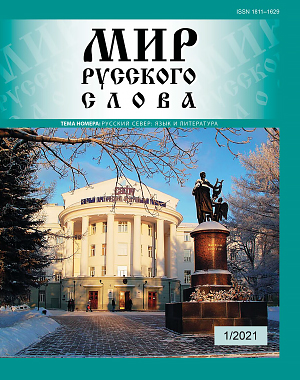The Rhetorical Ideal of Modern Russian Students: from Reconstruction to Linguoaxiological Interpretation
DOI:
https://doi.org/10.24412/1811-1629-2021-1-37-42Abstract
The processes of globalization and informatization of society form new ideas about the rhetorical guidelines of our time, determining the need to study the phenomenon of rhetorical ideal in its linguoaxiological aspect in order to identify the value-speech guidelines that form the modern communicative space. The article presents the reconstruction of ideas about the rhetorical ideal of modern students, the audience that forms the speech space of modernity. The article presents the structure of the questionnaire, which can help to identify communicative speech values of the younger generation, in accordance with which the processes of communicative interaction will be determined and regulated in the future. The results of the survey demonstrate the syncretic nature of modern students’ rhetorical ideal, due to the combinatorics of both domestic and Americanized axiological units, the ability for typological transformation generated by the changes in ideas about exemplary speech behavior in the context of cultural globalization. Based on the results of the survey, the axiological structure of the rhetorical ideal of modern students was formed, refl ecting the value speech priorities of the respondents. By establishing correlations between the communicative speech values of the rhetorical ideal and the means of their verbalization, the article off ers the linguoaxiological interpretation of the texts by the media leader Yuri Dud’, who is popular among the students. The results of the study demonstrate the validity of the linguoaxiological interpretation procedure, which helps to identify the mechanisms of verbalization of communicative speech values that ensure the popularization of media fi gures in the minds of many young people.
Keywords:
rhetorical ideal, linguoaxiology, communicative speech values, Russian students, questionnaires
Downloads
References
References
Downloads
Published
How to Cite
Issue
Section
License
Articles of "The World of Russian Word" are open access distributed under the terms of the License Agreement with Saint Petersburg State University, which permits to the authors unrestricted distribution and self-archiving free of charge.




